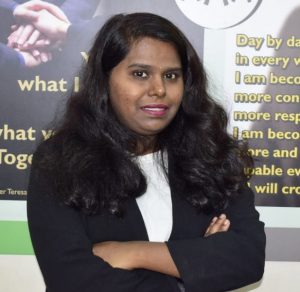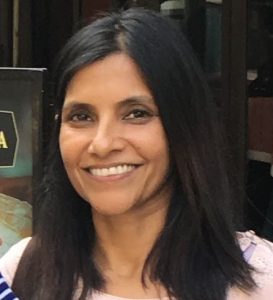
Across the globe, the development sector has produced enough evidence to show that changing a community begins with empowering its women. On that front, there is still work to be done in rural India where the labour force participation rate for women lags behind countries in Asia as well as urban India. Women Collectives and Self-Help Groups (SHGs) that draw on pooled resources and capabilities are proven and effective platforms for economic empowerment. The group-based model serves as a supportive base where the women can test and strengthen newly-acquired skills and collectively forge paths towards financial security and independence.
Starting Up
The Collectives run by us – Head Held High Foundation – operate under Antarprerna, our rural entrepreneurship programme, aim at nurturing place-based economic opportunities. They allow women in a given community to come together for group enterprises, creating sustained income and job security for them – all within the vicinity of their homes.

Our first Collective was formed in Wadi, Karnataka, in August 2019 with infrastructure support (including space and equipment) from ACC Trust. We had a market partner in Meemansa, which upcycles fabric waste into other textile products. Before long, the Wadi group was filling Meemansa’s orders for cloth bags. Mobilising the ten women who were part of the project initially was not easy. Apart from working around logistical roadblocks, the team had to overcome the reservations of the families and the women themselves to get the Centre up and running.
The road to empowering the Antarprerna women involved many hurdles. Productivity was an issue initially until we came up with more efficient ways of splitting up the tasks involved – including cutting, ironing and stitching – between the women.
Growing Up
Much has happened between then and now. There are four Collectives operational currently – two in Karnataka (Wadi and Chikballapur), one in Maharashtra (Chandrapur) and a fourth one recently launched in Odisha (Rayagada). Together, they include 90 women with skills ranging from sewing, tailoring and hand embroidery to knitting, crochet and macrame. Working an average of seven hours a day, each woman can efficiently manage her time and consistently meet production targets, all while retaining a keen focus on quality standards. As a group, the women are motivated to learn new skills and take on more work.

Each Centre has a trainer to guide them through the intricacies of creating various products. The trainer is vital to the success of each collective. She helps keep the group morale and motivation levels up and encourages the women to set goals for themselves, professionally and financially. Given the rural locations of the Collectives, each trainer regularly solves logistical challenges spanning sourcing, packaging and transportation. Although they started with simple cloth bags, their product portfolio now includes masks, jute and canvas bags, aprons, garments, hand embroidered items, knit patterns for carpets and more.
Thanks to our market partners, Meemansa, Stitch in Time (a heritage craft unit started by designer Deepa Chikarmane), and Craftizen Foundation (a craft-based skilling organisation), among others, who have supported the women with their orders. The women have generated sustained income while continually upgrading their skills.
Challenges
 The road to empowering the Antarprerna women involved many hurdles. Productivity was an issue, initially, until we came up with more efficient ways of splitting up the tasks involved – including cutting, ironing and stitching – between the women.
The road to empowering the Antarprerna women involved many hurdles. Productivity was an issue, initially, until we came up with more efficient ways of splitting up the tasks involved – including cutting, ironing and stitching – between the women.
During the first pandemic-induced lockdown in 2020 and subsequent restrictions, we had to figure out alternate ways to keep the work going. Pivoting to produce safety masks that were the need of the hour required additional training. With centres closed for an indefinite period, we equipped the women to work from their homes. We set up a milk-run model to drop off the fabric and then pick up the finished masks. Raw material shortages were common with courier services and public transport impacted by the shutdowns. There was a steep rise in fabric material as well. We overcame these hurdles with implementable solutions in the prevailing environment. Once lockdown restrictions eased, the centres reopened for work. The women were divided into smaller groups and shifts to follow social distancing and other COVID guidelines at work.
set up a milk-run model to drop off the fabric and then pick up the finished masks. Raw material shortages were common with courier services and public transport impacted by the shutdowns. There was a steep rise in fabric material as well. We overcame these hurdles with implementable solutions in the prevailing environment. Once lockdown restrictions eased, the centres reopened for work. The women were divided into smaller groups and shifts to follow social distancing and other COVID guidelines at work.
Following this orientation and experience of working in the Collectives, the women have started taking tentative steps towards starting their local ventures. In Wadi, some of them have taken orders for regional favourites such as jowar rotis and peanut chikkis. In Chandrapur and Chikballapur, the women handle local tailoring orders to supplement their income. There is a substantial amount of peer-based learning and sharing within each group.
|
Voices from the Collectives |
|
|
|
|
|
|
|
|
More than two years after we started in Wadi, the Collectives are well established and the women now possess many core skills along with a greater agency and a sense of optimism about their future. Through the team’s efforts and with the support of committed partners, they have already made significant progress in the journey towards economic empowerment. With further upskilling and access to funds, resources and mentoring networks through the larger ecosystem, they will soon be able to fly on their own.
Impact
 Since the project first got off the ground in 2019, we have mobilised, trained or supported close to 200 women. The cumulative income generated across them during this period is close to ₹20 Lakhs. The team also works with the women to connect them to relevant social security schemes. Until now, this has involved helping them with getting Jan Dhan
Since the project first got off the ground in 2019, we have mobilised, trained or supported close to 200 women. The cumulative income generated across them during this period is close to ₹20 Lakhs. The team also works with the women to connect them to relevant social security schemes. Until now, this has involved helping them with getting Jan Dhan  accounts. These accounts are linked to multiple benefits, including life and accident insurance and financial inclusion through access to banking services.
accounts. These accounts are linked to multiple benefits, including life and accident insurance and financial inclusion through access to banking services.
In addition to craft-based skilling, the women also go through more than 15 hours of General Entrepreneurship Training delivered by our team. The goal is to help them develop the mindset and knowledge necessary to stay the course in self-employment. These sessions cover topics such as the pros and cons of starting a business, investment and cost calculations, profitability, and more. By giving them a view of what is involved, we aim to help them develop the stamina and will to pursue their entrepreneurial aspirations.
 Following this orientation and experience of working in the Collectives, the women have started taking tentative steps towards starting their local ventures. In Wadi, some of them have taken orders for regional favourites such as jowar rotis and peanut chikkis. In Chandrapur and Chikballapur, the women handle local tailoring orders to
Following this orientation and experience of working in the Collectives, the women have started taking tentative steps towards starting their local ventures. In Wadi, some of them have taken orders for regional favourites such as jowar rotis and peanut chikkis. In Chandrapur and Chikballapur, the women handle local tailoring orders to  supplement their income.
supplement their income.
There is a substantial amount of peer-based learning and sharing within each group. When there is downtime, they watch videos to learn how to make new products such as  floor mats, macrame plant holders, decorative door hangings (torans) and more.
floor mats, macrame plant holders, decorative door hangings (torans) and more.
These point to a slow mindset and operating shift from dependency to self-sufficiency for the Collectives. Over time, we expect that they can leverage their know-how, skills and increased confidence to organise as SHGs focuses on catering to the home and textile value chains.

More than two years after we started in Wadi, the Collectives are well established and the women now possess many core skills along with a greater agency and a sense of optimism about their future. Through the team’s efforts and with the support of committed partners, they have already made significant progress in the journey towards economic empowerment. With further upskilling and access to funds, resources and mentoring networks through the larger ecosystem, they will soon be able to fly on their own.
Authors:




 Harshlata
Harshlata
 Champa
Champa  “There were hardly any job opportunities for us in Wadi. I used to feel bad that I was not able to work outside. Though I knew tailoring, I could not get any customers from the village. Now I feel good having an income. I can support my family and take care of my mother’s medicinal expenses. I hope to see hundreds of women in Wadi employed and economically empowered,” says
“There were hardly any job opportunities for us in Wadi. I used to feel bad that I was not able to work outside. Though I knew tailoring, I could not get any customers from the village. Now I feel good having an income. I can support my family and take care of my mother’s medicinal expenses. I hope to see hundreds of women in Wadi employed and economically empowered,” says